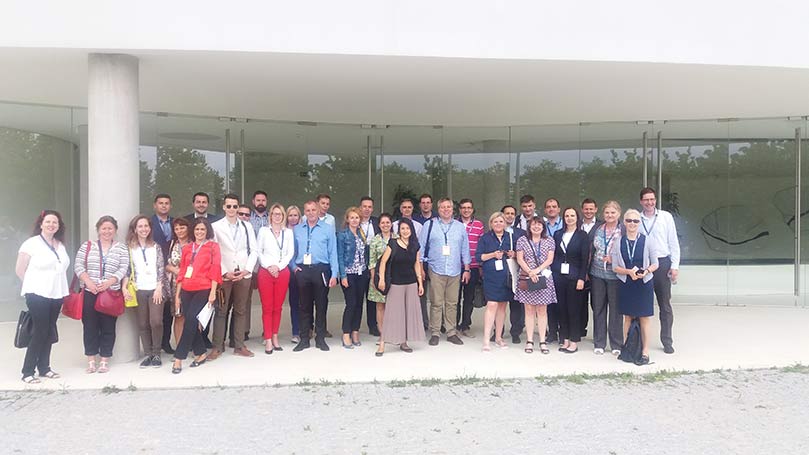As cities take on the challenge of becoming smart cities, agile organisations and ecosystems play a crucial role in ensuring that technology can be used to its full potential. The Smart Impact project, funded through the European Regional Development Fund’s Urbact programme, brought together 10 partner cities across Europe to explore and develop innovation management tools for municipalities that need to finance, build, manage and operate a smart city.
- 20 September 2020
Group members participated in transnational meetings which covered specific themes within the project. Those exchanges gave them new ideas on how to better the cooperation with local stakeholders and to deliver some desired activities.
Manchester City Council led the Urbact action planning network that united stakeholders from Ireland, Portugal, Spain, Croatia, Bulgaria, Romania, Hungary, Sweden and the Netherlands. The key output of the project was a series of plans, specific to each partner city, which defined concrete actions to be taken to ensure smart and sustainable urban development.
A five-pronged approach
While smart city programmes across the EU are increasingly emphasising technology-based and data-driven developments, little focus has been put on governance structures, processes, business model innovation and integrated planning to support the delivery of results. This gap leaves many cities ill-equipped to take full advantage of the opportunities on offer.
To address this challenge, the SmartImpact project focused on learning and knowledge sharing across five thematic areas:
Organisational development – how municipalities can develop new structures and processes to support the smart city; Finance and procurement – ways to finance and procure innovation and how cities can plan, support and monetise new business models to deliver innovation; Regulations and incentives – smart policies and regulations to support a smart city; Innovation ecosystems – how a city can support its own ecosystem to provide solutions to city challenges; Data governance and integration – challenges and opportunities of data use, including open data, data marketplaces, ownership and protection.In a parallel process, each of the 10 SmartImpact project partners set up an Urbact local group to gather key local stakeholders. The aim of these groups was to integrate learning from the project, and the participants drew up plans outlining the actions needed to respond to smart city challenges.
Collective learning
Over the course of the two-year project, partner cities hosted six two-day programmes. These workshops provided an opportunity to experience solutions in action, with each one covering a thematic area. Guided visits were organised, and invited experts gave talks on smart city challenges and solutions.
The collective experience of the 10 partner cities proved to be a real strength to the project. The larger and more experienced cities of Dublin, Porto and Manchester brought opportunities the other cities could learn from.
Smaller cities demonstrated valuable expertise in certain areas, for example Guadalajara, Spain, in using data for city management, Miskolc (Hungary) in transport development, and Smolyan (Bulgaria) in mayoral engagement.
The project was supported by lead expert Alanus von Radecki, who is head of a research unit on smart cities at the Fraunhofer Institute, a leading European research group.
Developing plans
During the project, the plans were subject to thorough peer review. Here, the goal was to take advantage of the considerable collective experience of the group and that of Von Radecki.
By the end of the project, each city finalised its plan, and a project website was created to showcase papers and case studies on the five thematic areas. As a result, the partner cities had a blueprint for transforming their own cities and other cities could learn from the project and better understand how to become smart.
The project was implemented as part of Urbact, the European Territorial Cooperation programme that aims to foster sustainable integrated urban development in cities across Europe. It uses resources and know-how to strengthen cities’ capacity to make improvements in four areas: governance, environment, inclusion and economy.
Total investment and EU funding
Total investment for the project “Smart Impact” is EUR 750 000 with the EU’s European Regional Development Fund contributing EUR 572 566 through the “URBACT” programme for the 2014-2020 programming period.

